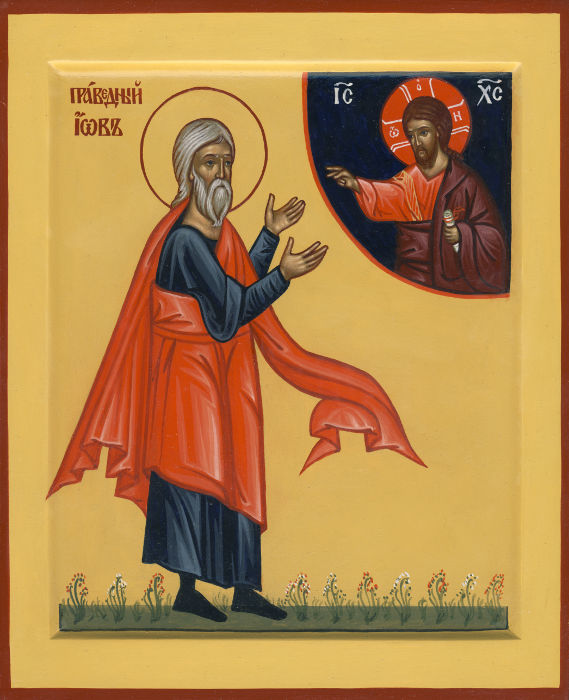 The Prophet Job’s feast on the Byzantine calendar is May 6 and the Latin Church’s calendar on May 10.
The Prophet Job’s feast on the Byzantine calendar is May 6 and the Latin Church’s calendar on May 10.
Job is the archetype of the just man. According to the religious and ethical thought of his time, which viewed material prosperity as evidence of an upright life, Job was expected to be wealthy, and yet he was afflicted with suffering. Modern scholars point out that Job was not a historical person, but an ‘epic character.’ While this is no doubt the case of the Job of the first of the Wisdom books, the author probably based his work on the Job of ancient tradition, who was believed to have lived during the patriarchal age on the borders of Arabia and Edom.
The Book of Job is cast in dialogue form between Job and three friends who come to commiserate with him over his misfortunes. They insist that his condition is a punishment from God for his sins, but Job maintains that he is innocent. Near despair, he demands a hearing from God, and this he is granted. God speaks from a thunderstorm to expose as futile all the solutions of Job and his friends since God cannot be judged and his ways are inscrutable.
The Church uses the book of Job during Holy Week, where Job’s suffering innocence serves as a prophetic reflection of the innocent suffering of Christ.
Meditation by the New Skete Communities
#ByzantineCatholicNewHaven
#stmichaelnewhaven